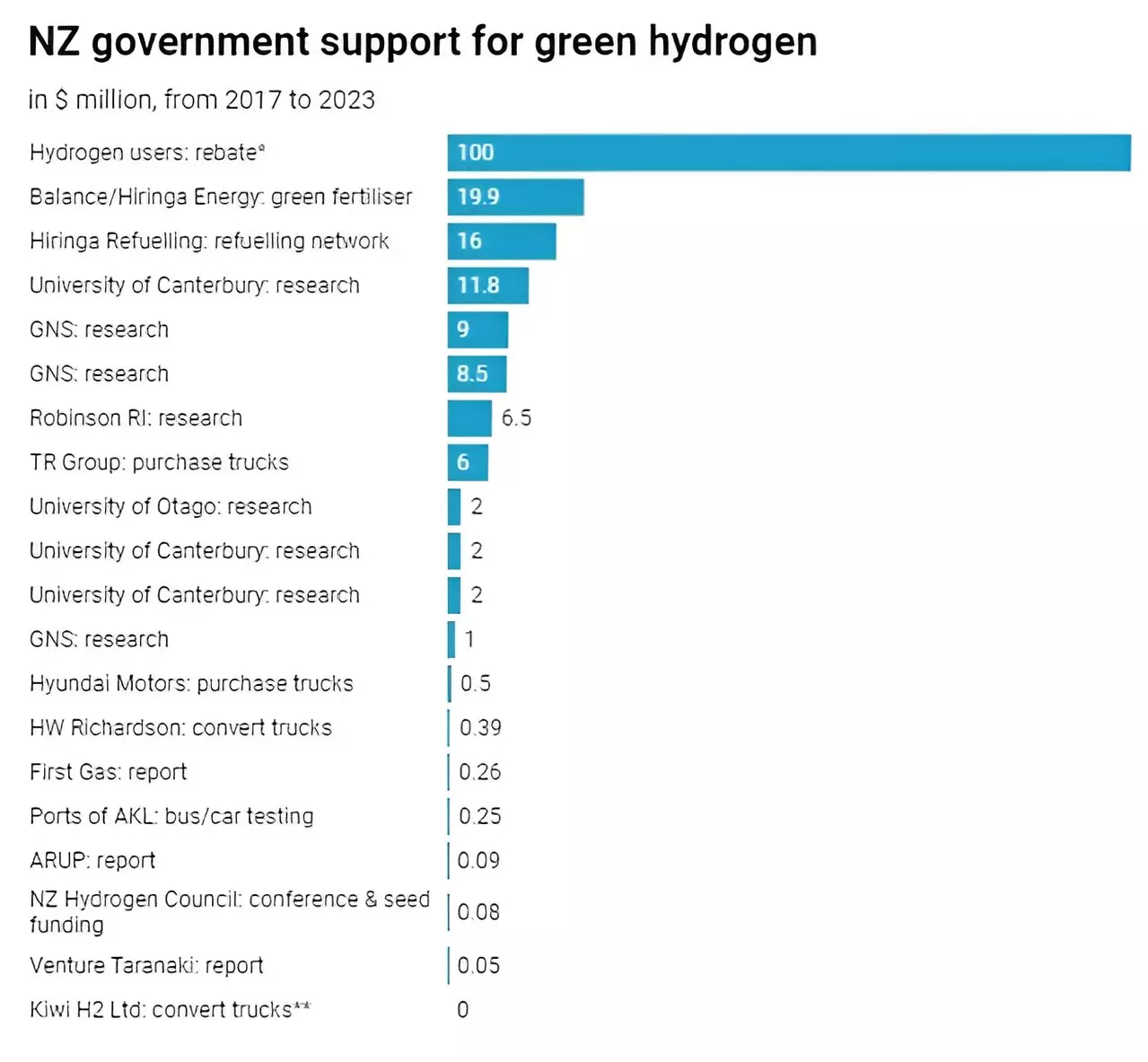The recent setback in the deal to bring hydrogen-powered trucks to New Zealand, coupled with the removal of a substantial government rebate scheme for green hydrogen users in the 2024 budget, has raised doubts about the future of this much-touted energy technology in the country. The decision by the US company Hyzon to withdraw from the deal has left a void in the government’s ambitious energy strategy, which included the purchase of heavy freight hydrogen trucks to pave the way for a transition to green hydrogen.
The Rise of Hydrogen Interest
Despite the recent challenges, the interest in hydrogen as a crucial component of future transport and energy systems has been steadily growing on a global scale, including in New Zealand. However, amidst the prevailing optimism, critical voices that question the feasibility and effectiveness of green hydrogen have been largely absent from the discourse in the country.
In New Zealand, green hydrogen – produced using electricity from renewable sources – has received substantial government backing amounting to $186.3 million between 2017 and 2023. This funding has been utilized for the development of a hydrogen refueling network, conversions and purchases of hydrogen vehicles, research initiatives, and the establishment of the New Zealand Hydrogen Council.
Debating the Merits of Green Hydrogen
Advocates for green hydrogen argue that it is indispensable for decarbonizing challenging economic sectors such as heavy transport, shipping, and fertilizer production, where direct electrification may not be a viable option. However, there are conflicting opinions on which sectors should be prioritized for hydrogen adoption and whether hydrogen is indeed the most suitable choice for sustainable energy transition.
While the narrative surrounding green hydrogen in New Zealand has largely been optimistic, there is a growing need for critical evaluation and analysis of the technology. Studies and expert opinions that cast doubt on the efficacy and cost-effectiveness of green hydrogen, particularly in comparison to alternatives like battery electric vehicles, are gaining traction globally.
Government policies on green hydrogen must be driven by independent advice devoid of commercial interests to ensure informed decision-making. It is crucial to acknowledge that hydrogen is an energy carrier that requires production from other energy sources, rather than being an energy resource itself. This nuanced perspective will enable the allocation of resources to applications with the highest potential for achieving New Zealand’s decarbonization and sustainability goals.
A New Narrative for Green Hydrogen
Moving forward, a reevaluation of the green hydrogen narrative in New Zealand is imperative to align with evolving energy trends and technological advancements. By incorporating critical analysis and independent advice into policy-making, the country can steer towards a more sustainable and cost-effective energy future, potentially transforming key industries to adopt green hydrogen for the production of essential commodities like steel, ammonia, fertilizer, and methanol.


Leave a Reply